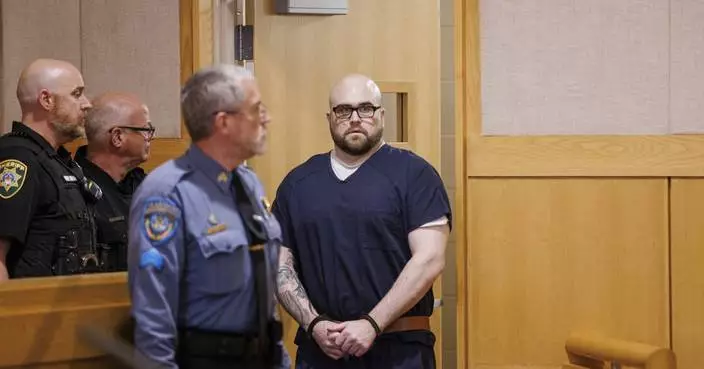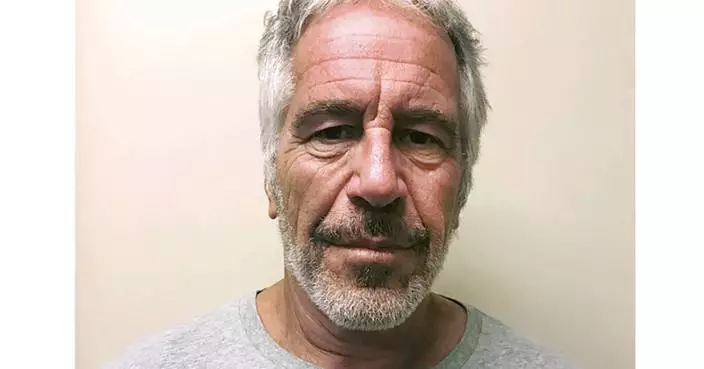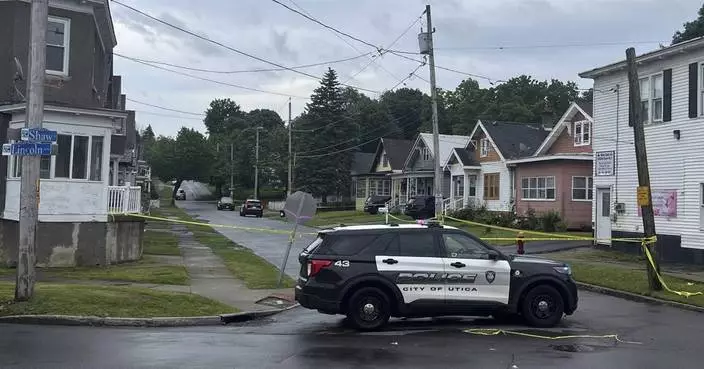CHARLESTON, W.Va. (AP) — The head of the national mine workers’ union on Friday condemned what he characterized as an effort by House Republicans to block enforcement of a long-awaited federal rule directed at curbing workers' exposure to poisonous, deadly rock dust, calling it “a direct attack on the health and safety of coal miners.”
United Mine Workers of America International President Cecil E. Roberts said a budget provision — approved by a U.S. House subcommittee Thursday — prohibiting the Department of Labor from using funding to enforce a silica dust rule operators must be in compliance with next year is “morally reprehensible” and that the action "undermines the principles of fairness and justice that our country stands for.”
“It is difficult for me to understand how certain members of Congress could possibly be supportive of more miners dying a suffocating death as a result of being forced to breathe this dust,” Roberts said in a statement.
Silicosis, commonly referred to as black lung, is an occupational pneumoconiosis caused by the inhalation of crystalline silica dust present in minerals like sandstone. Finalized in April by Acting Labor Secretary Julie Su, the U.S. Mine Safety and Health Administration rule cuts by half the permissible exposure limit for crystalline silica for an eight-hour shift.
The regulation is in line with exposure levels imposed by the Occupational Safety and Health Administration on construction and other non-mining industries. And it’s the standard The Centers for Disease Control was recommending as far back as 1974. The U.S. Department of Labor began studying silica and its impact on workers’ health in the 1930s, but the focus on stopping exposure in the workplace largely bypassed coal miners.
Su said in April that it is “unconscionable” America's miners have been forced to work without the protections for so long: “We’re making it clear that no job should be a death sentence."
The black lung problem has only grown in recent years as miners dig through more layers of rock to get to less accessible coal, generating deadly silica dust in the process. Silica dust is 20 times more toxic than coal dust and causes severe forms of black lung disease even after a few years of exposure.
The increased drilling has meant that severe forms of the disease are being identified even among younger Appalachian miners, some in their 30s and 40s. An estimated one in five tenured miners in Central Appalachia has black lung disease; one in 20 has the most disabling form of black lung.
On Thursday, the House subcommittee did not debate the bill containing the silica dust rule enforcement block before advancing it. A spokesperson for Labor, Health and Human Services and Education Subcommittee Chair U.S. Rep. Robert Aderholt, a Republican representing Alabama, did not return an email request for comment Friday. Neither did the National Mining Association, which represents operators.
Mine safety advocates are scrambling to meet with lawmakers before the bill is scheduled to go before the full House Appropriations Committee on July 10. It would have to be greenlit by that committee before going to the full chamber.
Quenton King, federal legislative specialist for Appalachian Voices, a nonprofit that advocated for the silica dust rule, said the protection is essential to protecting not only coal miners in central Appalachia, but metal and nonmetal miners across the country. If allowed to be enforced, it will help save thousands of lives, he said.
“To willfully prevent MSHA from doing that would literally be killing miners," he said.
West Virginia Attorney Sam Petsonk, who has represented coal miners who were diagnosed with black lung after companies violated safety violations, said he sees workers every day who have fewer than 10 years of mining experience diagnosed with end stage, fatal silicosis.
“This is a policy decision by the entire Republican party leadership to throw America’s miners to the dogs," he said. "It’s insulting and really unfair to our communities for them to do this to us. And it’s certainly inconsistent with the idea that the Republicans are trying to help coal miners and coal mining communities.”

FILE - United Mine Workers of America President Cecil E. Roberts speaks at a rally to celebrate Mitchell Day, a UMWA union holiday, on Friday, April 1, 2016, in Waynesburg, Pa. Roberts on Friday, June 28, 2024, condemned an effort by House Republicans to block enforcement of a long-awaited federal rule directed at curbing workers' exposure to deadly and poisonous rock dust, calling it “a direct attack on the health hand safety of coal miners.” (Kelly Tunney/Herald-Standard via AP, File)
DEDHAM, Mass. (AP) — A judge declared a mistrial Monday after jurors deadlocked in the case of Karen Read, a woman accused of killing her Boston police officer boyfriend by striking him with her SUV and leaving him in a snowstorm, a case that drew outsize attention thanks to true crime fanatics, conspiracy theorists and Read’s pink-shirted supporters.
Prosecutors said in a statement that they intend to retry the case.
Read, a former adjunct professor at Bentley College, faced second-degree murder and other charges in the death of Officer John O’Keefe, a 16-year member of the Boston police who was found outside a Canton home of another Boston police officer in January 2022. An autopsy found O’Keefe died of hypothermia and blunt force trauma.
Prosecutors said Read and O’Keefe had been drinking heavily before she dropped him off at a party at the home of Brian Albert, a fellow officer. They said she hit him with her SUV before driving away.
The defense sought to portray Read as the victim, saying O’Keefe was actually had been killed inside Albert’s home and then dragged outside and left for dead. They argued that investigators focused on Read because she was a “convenient outsider” who saved them from having to consider other suspects, including Albert and other law enforcement officers at the party.
On Friday, a jury foreperson told the judge that they hadn’t reached a unanimous verdict despite an “exhaustive review of the evidence.” The judge told jurors to keep trying. On Monday morning, jurors said they were at an impasse, but the judge asked them to continue deliberating. In the afternoon, they said it would be futile to continue.
“The deep division is not due to a lack of effort or diligence but rather a sincere adherence to our individual principles or moral convictions," the jury said in a note read by the judge in court.
O’Keefe’s mother cried after the mistrial was declared, while Read hugged her father and other relatives.
The Norfolk County district attorney's office said in a statement: “First, we thank the O’Keefe family for their commitment and dedication to this long process. They maintained sight of the true core of this case — to find justice for John O’Keefe. The Commonwealth intends to re-try the case.”
Defense attorney Alan Jackson said he and others representing Read will keep fighting.
“They failed. They failed miserably, and they’ll continue to fail. No matter how long it takes, no matter how long they keep trying, we will not stop fighting,” he told reporters outside court.
Testimony during the two-month trial focused on shoddy police work and relationships between the parties. Police acknowledged using red plastic cups to collect blood evidence and a leaf blower to try to clear away snow to reveal evidence. The lead investigator acknowledged making crude statements about Read in texts from his personal cellphone.
Experts disagreed on whether O’Keefe’s injuries were consistent with being hit by Read’s luxury SUV, which had a broken taillight. The defense contended the injuries were caused by an altercation and the Albert family’s aggressive dog.
While the drama played out in a courtroom, dozens of Read’s supporters dressed in pink gathered each day outside, carrying “Free Karen Read” signs and mobbing her when she arrived each day. Motorists honked their horns in support. A smaller group of people who want Read convicted also turned up.
Prosecutors relied on several first responders who testified that Read admitted that she hit O’Keefe — saying “I hit him” — as well as evidence that Read was legally intoxicated or close to it eight hours later, after she returned to the house with friends and they found the body.
Several witnesses testified the couple had a stormy relationship that had begun to sour. Prosecutors presented angry texts between the couple hours before O’Keefe died. They also played voice messages from Read to O’Keefe that were left after she allegedly struck him, including one left minutes afterward saying, “John I (expletive) hate you.”
Defense attorneys sought to poke holes in the police investigation, noting that Albert’s house was never searched for signs of a fight involving O’Keefe and that the crime scene was not secured. They suggested that some evidence -- like pieces of her SUV’s cracked taillight, a broken drinking glass and even a strand of hair -- was planted by police.
A turning point in the trial came when lead investigator, State Trooper Michael Proctor, took the stand. He acknowledged sending offensive texts about Read to friends, family and fellow troopers during the investigation. He apologized for the language he used but insisted they had no influence on the investigation.
In his texts, he called Read several names, including “whack job.” At one point, he texted his sister that he wished Read would “kill herself,” which he told jurors was a figure of speech. And despite having relationships with several witnesses, he remained on the case.
Two expert witnesses hired by the U.S. Department of Justice during an investigation of police handling of the case testified for the defense, providing a scientific analysis for their conclusion that O’Keefe’s injuries and the physical evidence didn’t sync with the prosecution theory that he was struck and injured by Read’s 7,000-pound (3,175-kilogram) vehicle.
O’Keefe had a significant head injury and other injuries but lacked significant bruising or broken bones typically associated with being hit by a vehicle at the speed indicated by GPS and the SUV’s onboard computer.
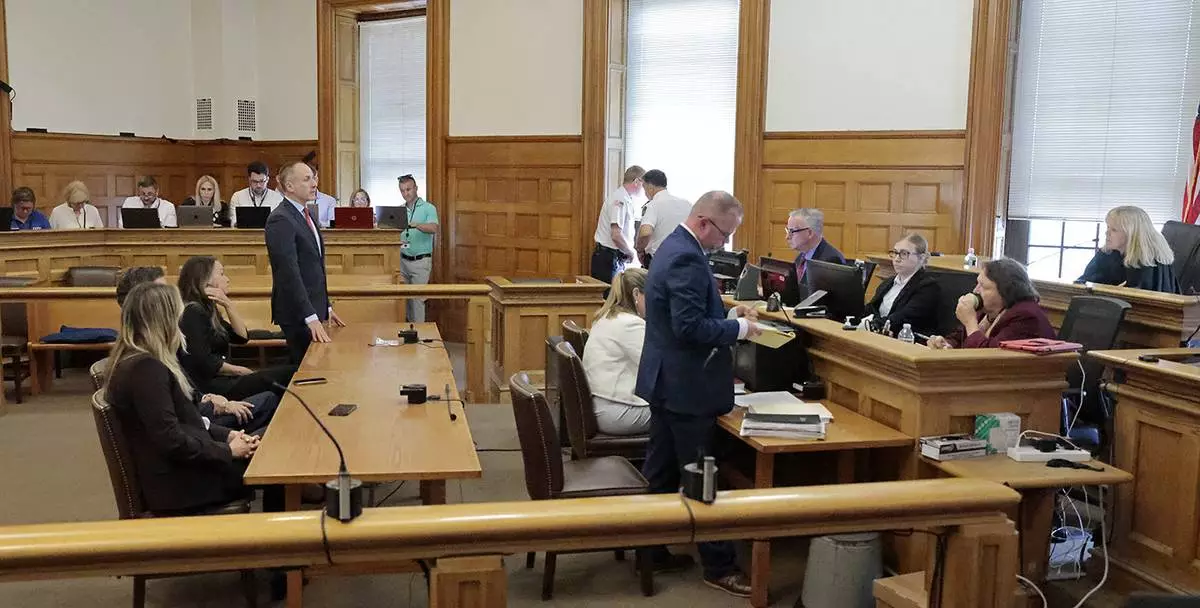
Before the jury enters, Judge Beverly J. Cannone, right, speaks to the defense and prosecution during the Karen Read trial at the Norfolk Superior Court in Dedham, Mass., Monday, July 1, 2024. This is their fifth day of deliberations in the murder trial for Read. Read is accused of backing her SUV into her Boston Police officer boyfriend, John O'Keefe, and leaving him to die in a blizzard in Canton, in 2022. (Pat GreenhouseThe Boston Globe via AP, Pool)

Karen Read, center, arrives at Norfolk Superior Court, Monday, July 1, 2024, in Dedham, Mass. Read is on trial, accused of killing her boyfriend Boston police Officer John O'Keefe, in 2022. The jury began deliberations in the trial Tuesday, June 25. (AP Photo/Steven Senne)
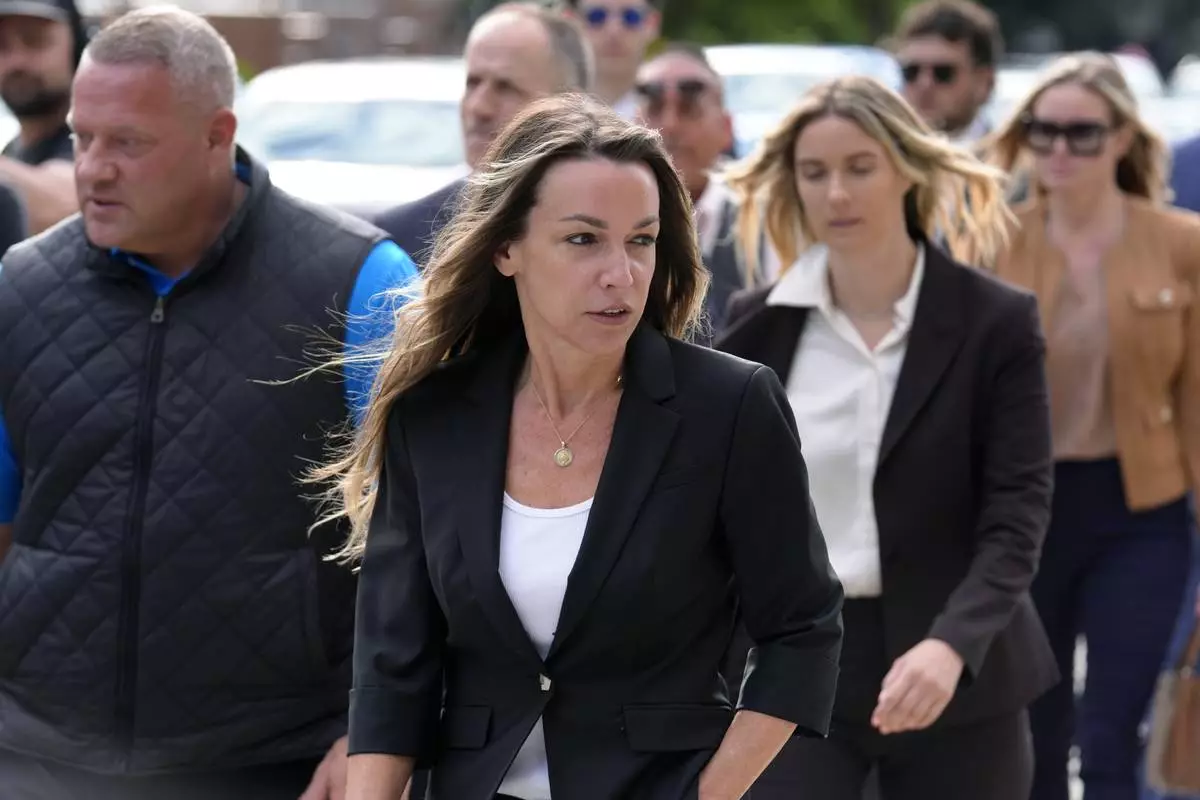
Karen Read, center, arrives at Norfolk Superior Court, Monday, July 1, 2024, in Dedham, Mass. Read is on trial, accused of killing her boyfriend Boston police Officer John O'Keefe, in 2022. The jury began deliberations in the trial Tuesday, June 25. (AP Photo/Steven Senne)
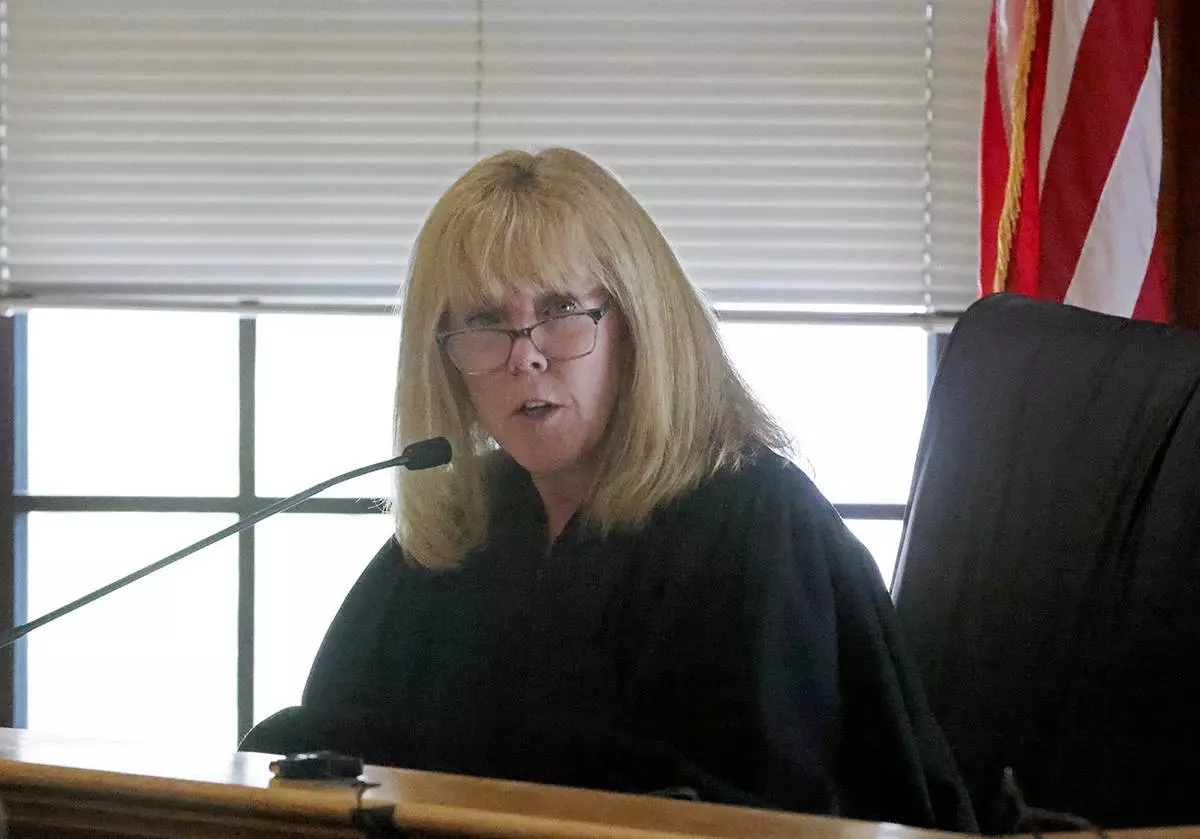
Judge Beverly J. Cannone speaks in Norfolk Superior Court, on their fifth day of deliberations in the murder trial for Karen Read in Dedham, Mass., Monday, July 1, 2024. (Pat Greenhouse/The Boston Globe via AP, Pool)
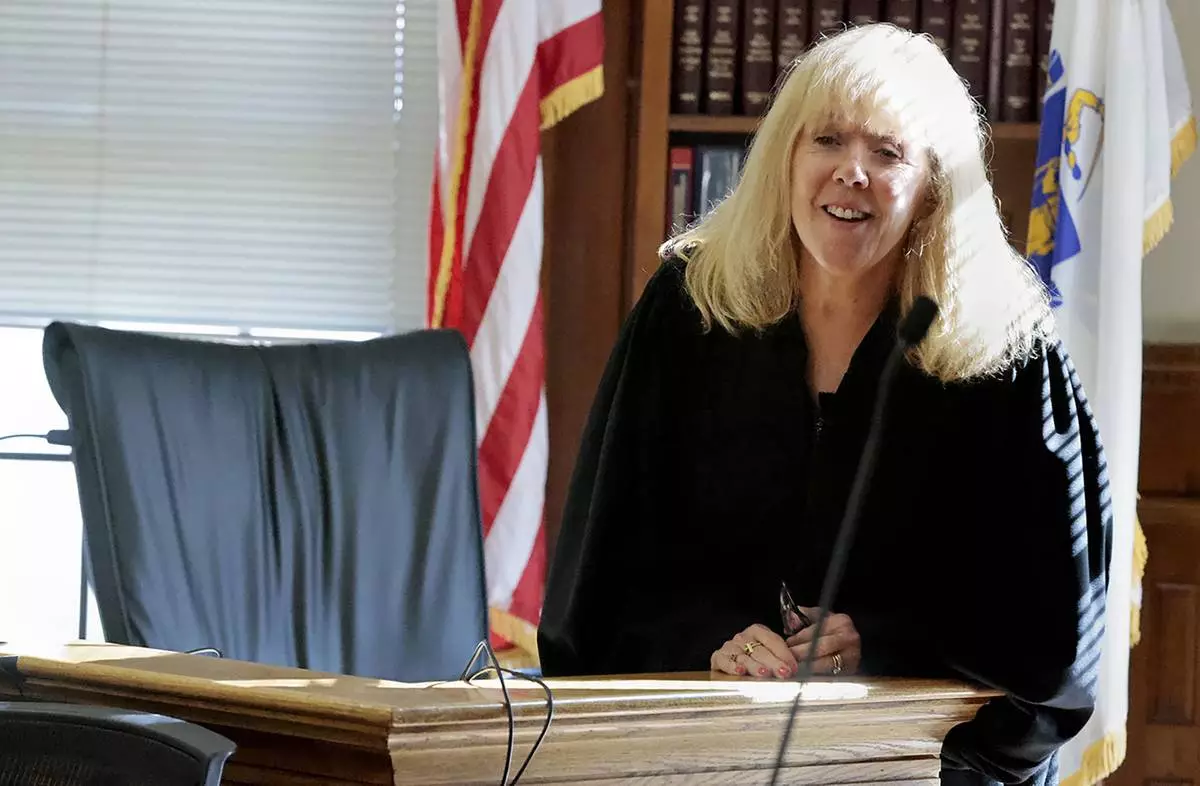
Judge Beverly J. Cannone greets jurors in Norfolk Superior Court, on their fifth day of deliberations in the murder trial for Karen Read in Dedham, Mass., Monday, July 1, 2024. (Pat Greenhouse/The Boston Globe via AP, Pool)
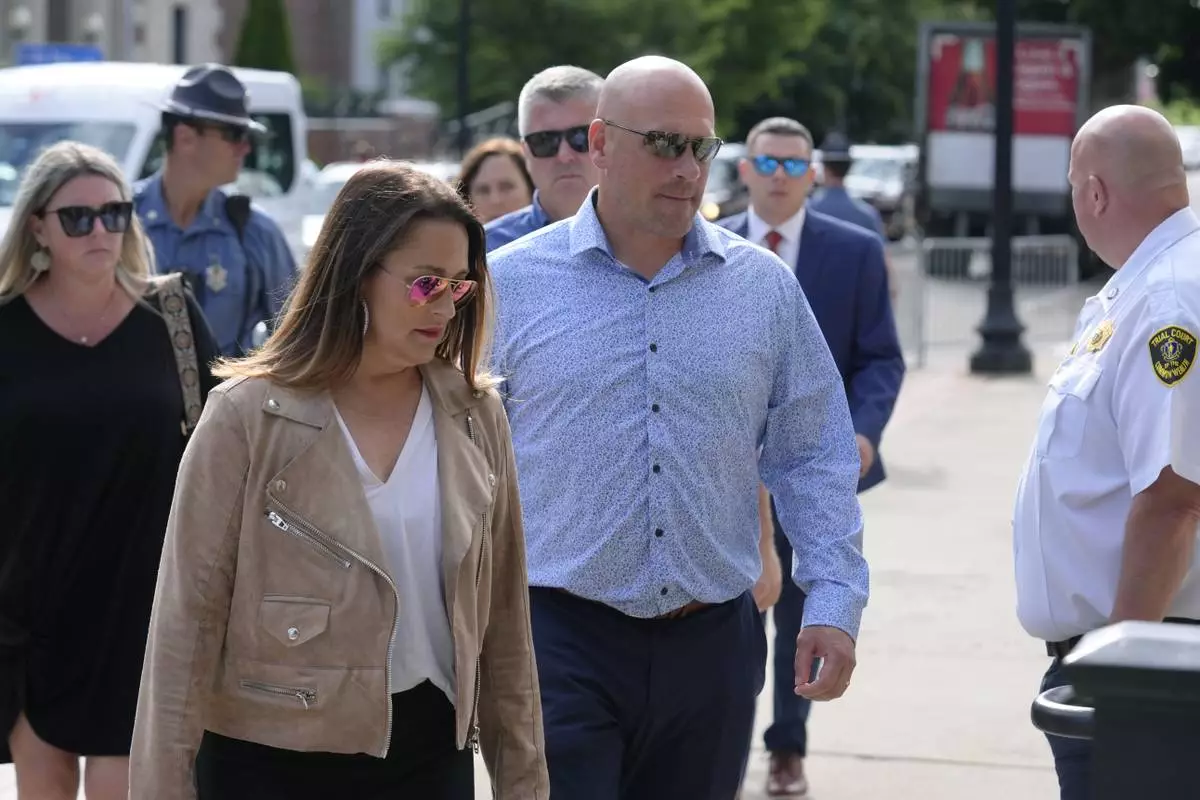
Paul O'Keefe, center, brother of the late Boston police Officer John O'Keefe, enters Norfolk Superior Court with his wife Erin O'Keefe, front left, Monday, July 1, 2024, in Dedham, Mass. Read is on trial, accused of killing her boyfriend John O'Keefe, in 2022. The jury began deliberations in the trial Tuesday, June 25. (AP Photo/Steven Senne)
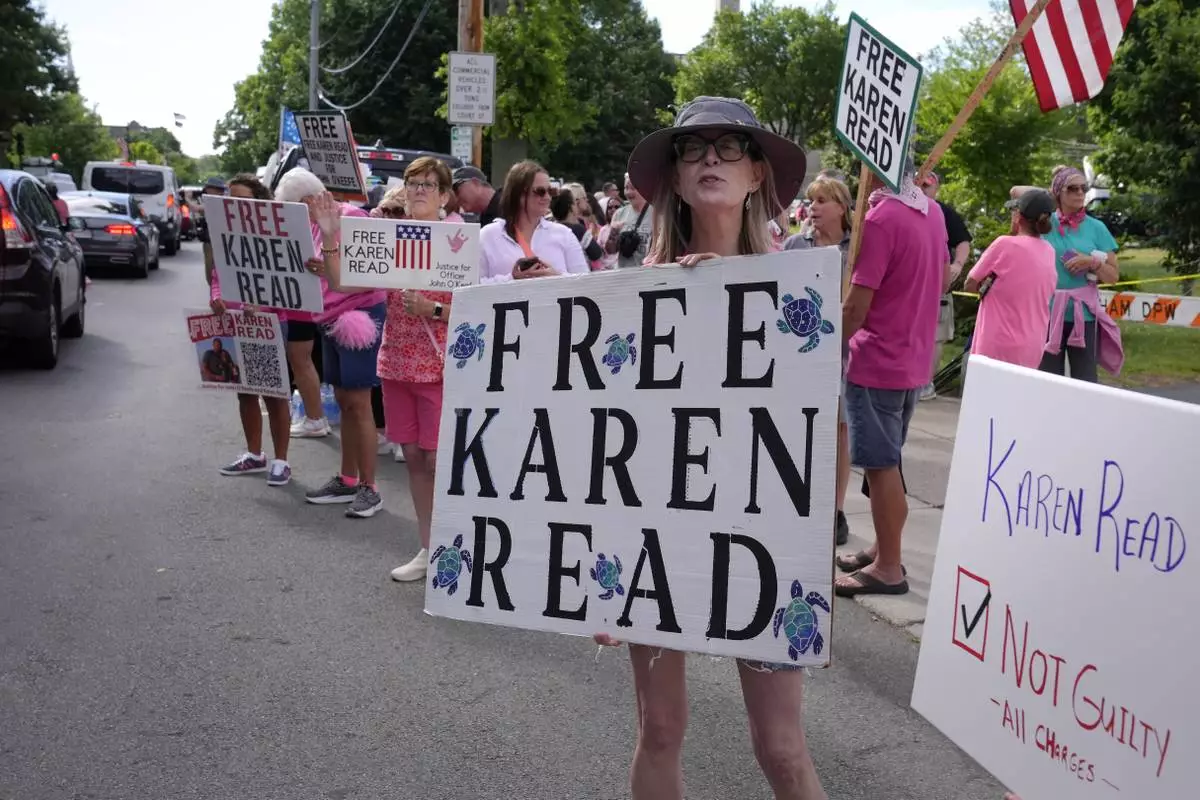
Jean Allan, of Weymouth, Mass., front, a supporter of Karen Read, displays a sign to passing cars near Norfolk Superior Court, Monday, July 1, 2024, in Dedham, Mass. Read is on trial, accused of killing her boyfriend Boston police Officer John O'Keefe, in 2022. The jury began deliberations in the trial Tuesday, June 25. (AP Photo/Steven Senne)

All stand as the jury files out to the courtroom, to start their fifth day of deliberations in the murder trial for Karen Read in Norfolk Superior Court in Dedham, Mass., Monday, July 1, 2024. (Pat Greenhouse/The Boston Globe via AP, Pool)
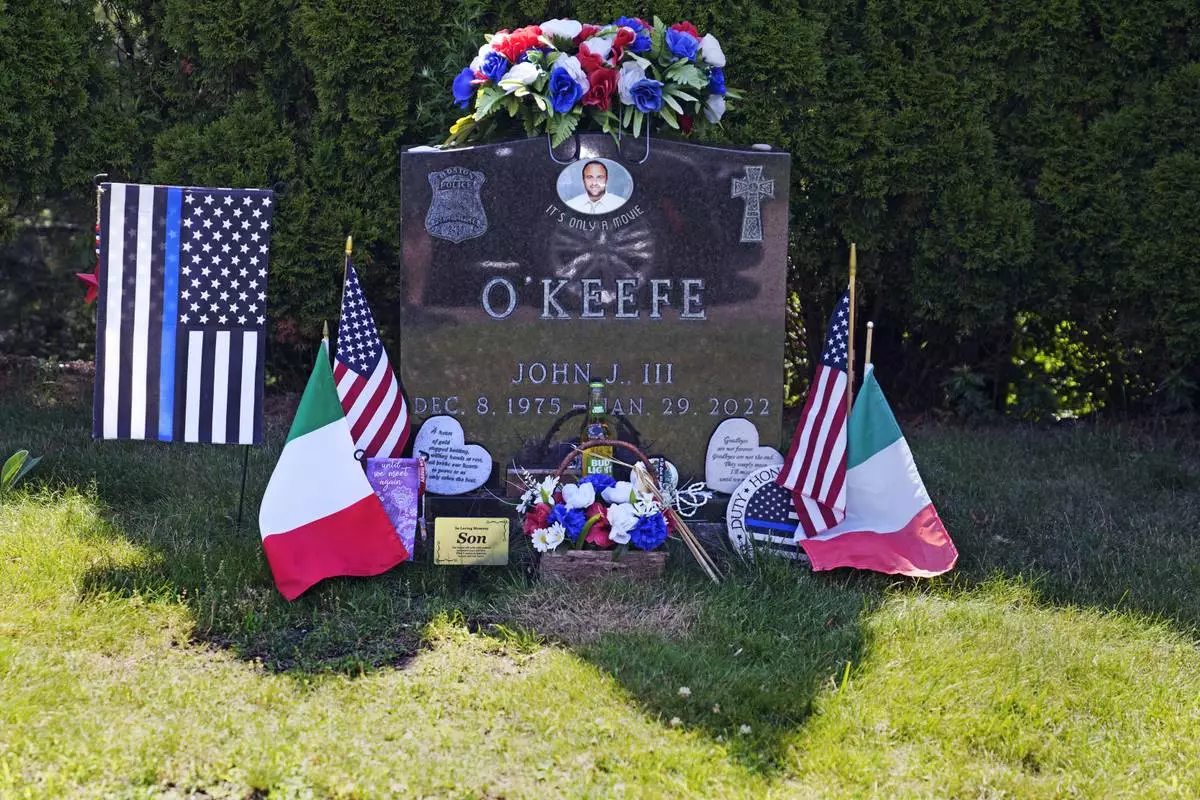
Flags, flowers and remembrances flank the headstone of John O'Keefe, a Boston police officer, at Blue Hill Cemetery, Thursday, June 27, 2024, in Braintree, Mass. A jury is deliberating the fate of O'Keefe's girlfriend, Karen Read, who is charged with second-degree murder in O'Keefe's death. (AP Photo/Charles Krupa)

Karen Read talks with her legal team at the Norfolk Superior Court in Dedham, Mass., Monday, July 1, 2024. This is their fifth day of deliberations in the murder trial for Read. Read is accused of backing her SUV into her Boston Police officer boyfriend, John O'Keefe, and leaving him to die in a blizzard in Canton, in 2022. (Pat Greenhouse/The Boston Globe via AP, Pool)

An empty flagpole is seen outside the residence where the body of John O'Keefe, a Boston police officer, was found on Jan. 29, 2022, outside the home, Thursday, June 27, 2024, in Canton, Mass. The fate of Karen Read, who is charged with second-degree murder in the death is in the hands of a jury currently deliberating her case. (AP Photo/Charles Krupa)
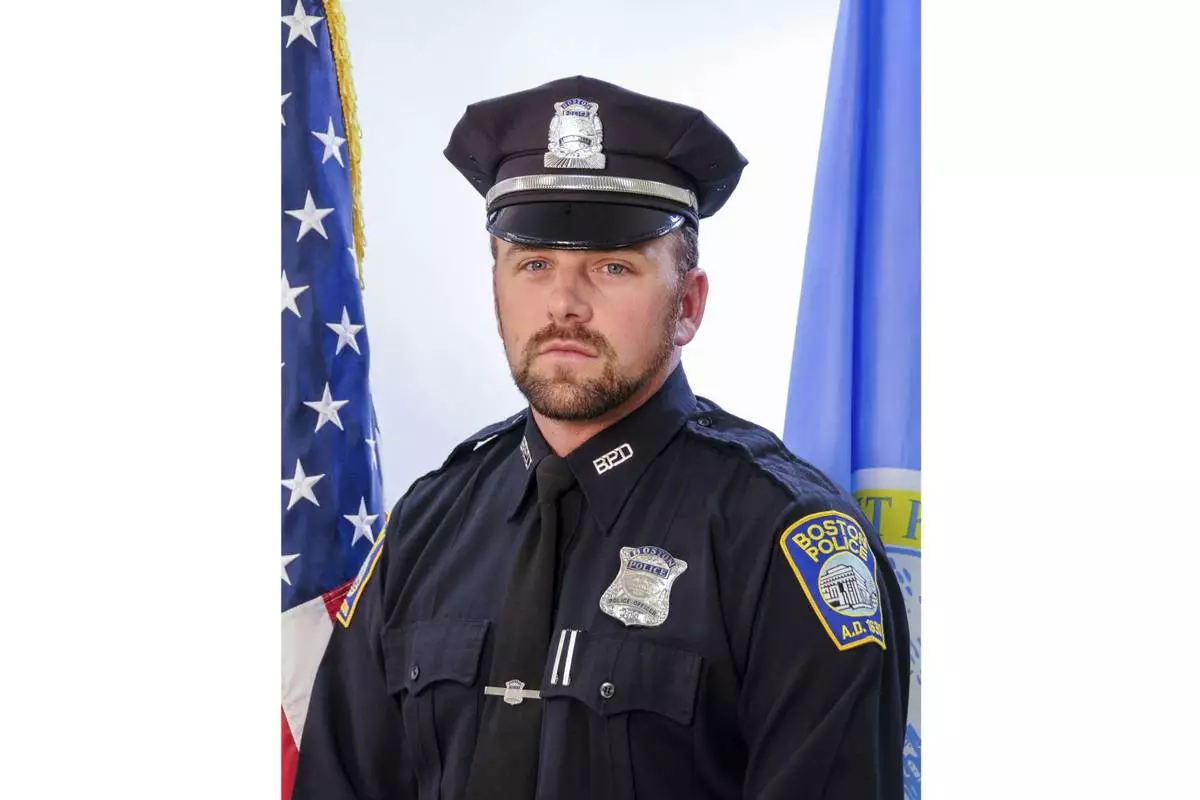
This photo undated photo released by the Boston Police Department shows officer John O'Keefe. (Boston Police Department via AP)

Karen Read, center, arrives at Norfolk Superior Court, Monday, July 1, 2024, in Dedham, Mass. Read is on trial, accused of killing her boyfriend Boston police Officer John O'Keefe, in 2022. The jury began deliberations in the trial Tuesday, June 25. (AP Photo/Steven Senne)


















